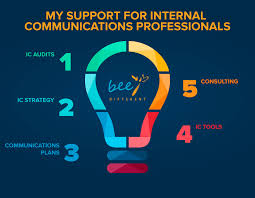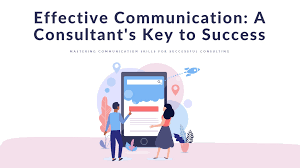Unleashing Creativity: The Power of the Online Content Creator
The Rise of Online Content Creators
In today’s digital age, the role of online content creators has become increasingly prominent. With the rise of social media platforms, blogs, vlogs, and other online channels, individuals are now able to create and share content with a global audience like never before.
Online content creators come in various forms – from influencers who share their lifestyle and fashion tips to YouTubers who create entertaining videos, and bloggers who provide insightful commentary on a wide range of topics. These creators have the ability to connect with their followers on a personal level, building loyal communities around their content.
One of the key reasons for the popularity of online content creators is the authenticity and relatability they bring to their work. Audiences are drawn to creators who are genuine, transparent, and offer a unique perspective on different subjects. This authenticity fosters trust and engagement among followers, leading to a strong sense of connection between creator and audience.
Furthermore, online content creators have revolutionised the way brands approach marketing. Collaborating with influencers and content creators has become an effective way for brands to reach their target audiences in a more organic and engaging manner. By partnering with creators whose values align with their own, brands can leverage the influence and credibility of these individuals to promote their products or services.
As online platforms continue to evolve and new trends emerge, the role of online content creators is only set to grow. With their creativity, passion, and ability to engage audiences in meaningful ways, online content creators are shaping the digital landscape and influencing how we consume information and entertainment.
Whether you’re a fan of lifestyle vlogs or tech reviews, there’s no denying the impact that online content creators have had on our digital experiences. As we navigate this ever-changing digital world, one thing remains clear – online content creators are here to stay.
Everything You Need to Know About Becoming an Online Content Creator: FAQs Answered
- How do I become an online content creator?
- How do I start making content online?
- Do content creators get paid?
- Is content creator a freelancer?
- What is a virtual content creator?
- How can you create content online?
- Is content creator a real job?
How do I become an online content creator?
To become an online content creator, aspiring individuals can start by identifying their passion or expertise in a particular niche, whether it be beauty, travel, technology, or any other area of interest. Next, they can create a plan for their content strategy, including the type of content they want to produce and the platforms they wish to use. Building a strong online presence through consistent and high-quality content is crucial, as well as engaging with their audience and staying authentic in their interactions. Collaborating with other creators and continuously learning about trends and best practices in the industry can also help aspiring online content creators establish themselves and grow their following over time.
How do I start making content online?
To embark on your journey as an online content creator, it is essential to start by identifying your passion and expertise. Determine what topics or niches you are genuinely interested in and knowledgeable about, as this will form the foundation of your content creation. Next, choose the most suitable platform for your content – whether it’s a blog, YouTube channel, podcast, or social media account. Invest time in creating high-quality and engaging content that resonates with your target audience. Consistency is key; establish a regular posting schedule to keep your audience engaged and coming back for more. Finally, engage with your audience, seek feedback, and continuously refine your content to improve and grow as a content creator.
Do content creators get paid?
Yes, content creators can get paid for their work. Many content creators earn income through various channels such as brand partnerships, sponsored content, affiliate marketing, advertising revenue, and product sales. The amount of money a content creator can make varies depending on factors like their audience size, engagement rate, niche market, and the platforms they use. Successful content creators often have multiple streams of income and can generate a sustainable income from their online presence.
Is content creator a freelancer?
The question of whether a content creator is considered a freelancer is a common one in the digital landscape. While many content creators operate independently and have the flexibility to work on a project-by-project basis, not all content creators fit the traditional definition of a freelancer. Some content creators may be employed by companies or agencies on a full-time or part-time basis, while others may work as freelancers, taking on various projects for different clients. Ultimately, the classification of a content creator as a freelancer can vary depending on their specific work arrangement and how they choose to structure their professional relationships in the online space.
What is a virtual content creator?
A virtual content creator, often referred to as a digital content creator, is an individual who produces and shares engaging and informative content online using virtual platforms such as social media, websites, or streaming services. These creators utilise digital tools and technologies to create a wide range of content, including videos, images, blogs, podcasts, and more. Virtual content creators leverage the power of the internet to reach a global audience and build communities around their work. They play a significant role in shaping online culture and entertainment by producing content that resonates with their followers and engages viewers in meaningful ways.
How can you create content online?
Creating content online involves several key steps to ensure that your content is engaging, informative, and resonates with your target audience. Firstly, identify your niche or area of expertise to establish a clear focus for your content. Conduct thorough research to understand what topics are trending and what your audience is interested in. Next, brainstorm ideas and create a content calendar to plan out your posts or videos. Utilise various formats such as blog posts, videos, infographics, or podcasts to cater to different preferences. Remember to incorporate relevant keywords for SEO purposes and promote your content across social media platforms to reach a wider audience. Lastly, engage with your followers by responding to comments and feedback to build a loyal community around your content. By following these steps and staying consistent in your efforts, you can create compelling and impactful content online as an aspiring content creator.
Is content creator a real job?
The question of whether being a content creator is a legitimate profession is a common one in today’s digital landscape. The reality is that content creation has evolved into a viable career path for many individuals, with opportunities to earn income through various channels such as sponsored collaborations, advertising revenue, and affiliate marketing. Content creators invest time, effort, and creativity into producing engaging and valuable content for their audiences, often building loyal communities around their work. As the demand for online content continues to grow, the role of a content creator is increasingly recognised as a legitimate job that requires skill, dedication, and strategic thinking to succeed in the competitive digital space.












